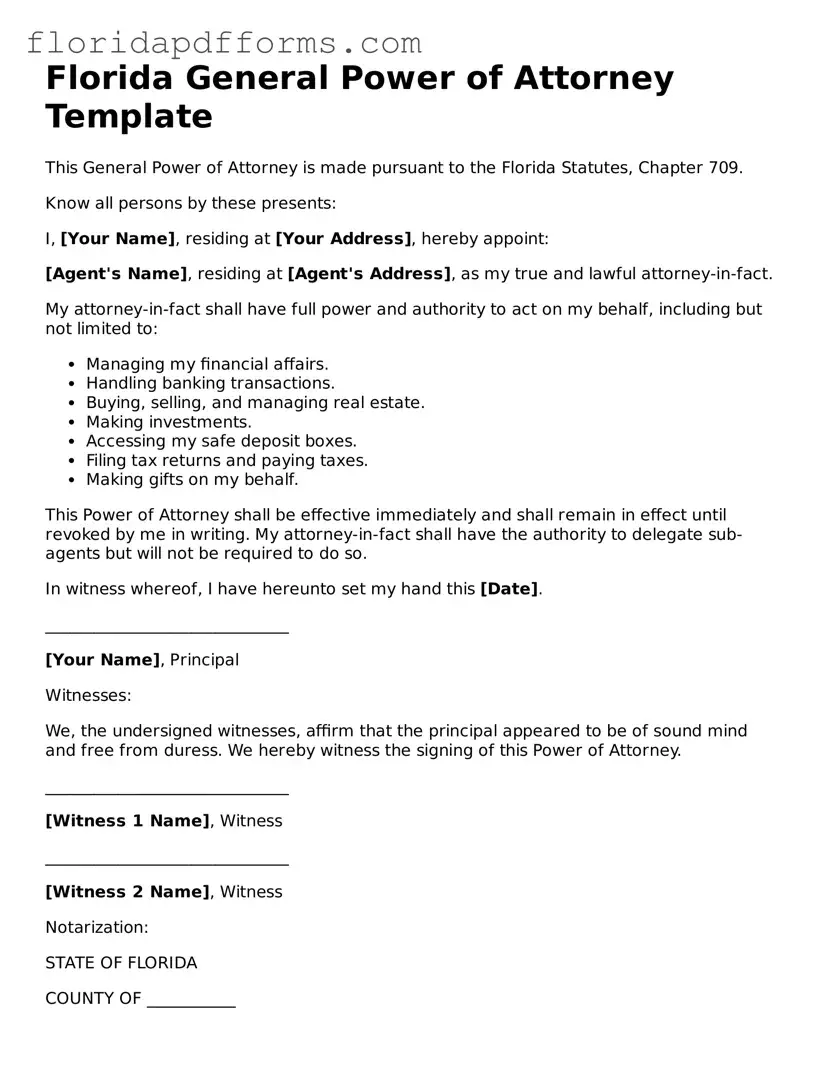Official General Power of Attorney Template for Florida
A Florida General Power of Attorney form is a legal document that grants an individual the authority to act on behalf of another person in a variety of matters, including financial and legal decisions. This form is essential for those who wish to ensure their affairs are managed by a trusted person when they are unable to do so themselves. To get started on filling out the form, click the button below.
Modify General Power of Attorney Now

Official General Power of Attorney Template for Florida
Modify General Power of Attorney Now

Modify General Power of Attorney Now
or
⇓ General Power of Attorney File
Don’t stop halfway through your form
Finish your General Power of Attorney online with quick edits and instant download.